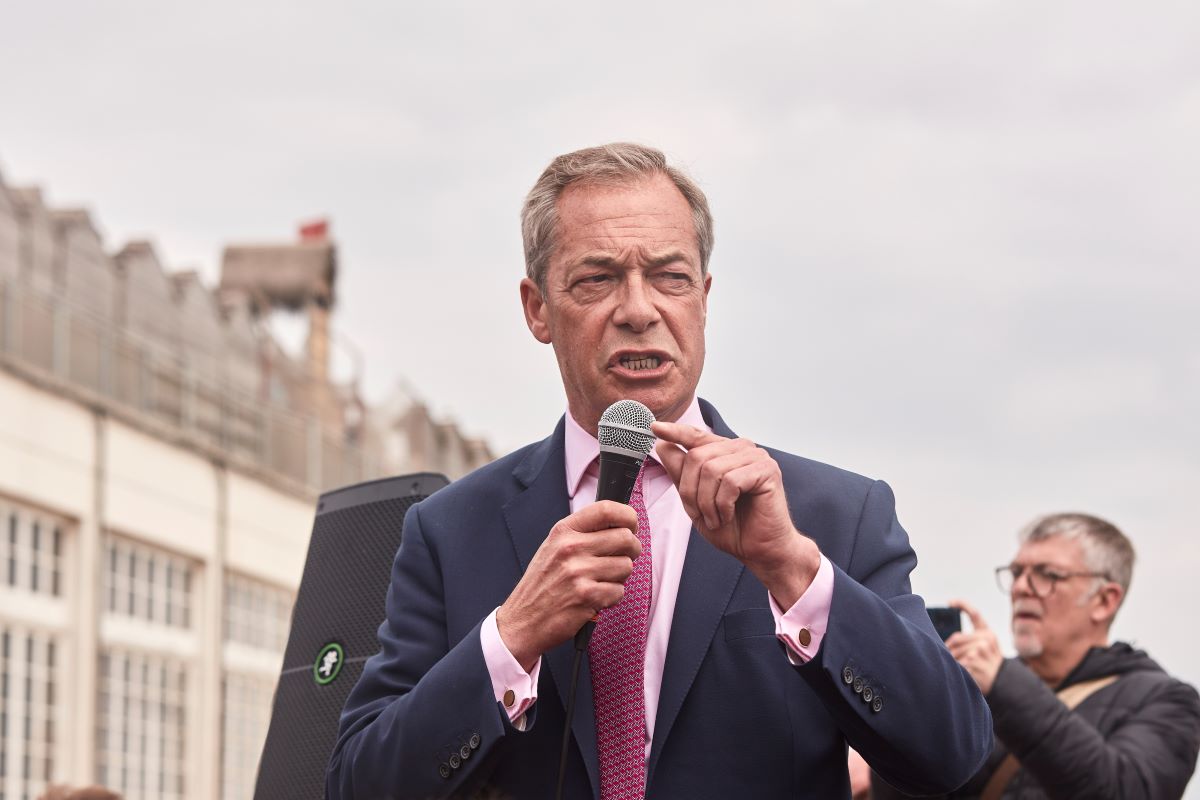A recent poll shows that half of the UK public holds Nigel Farage and Tommy Robinson responsible for the recent nationwide riots. Here’s the full story.
Public Holds Farage Accountable
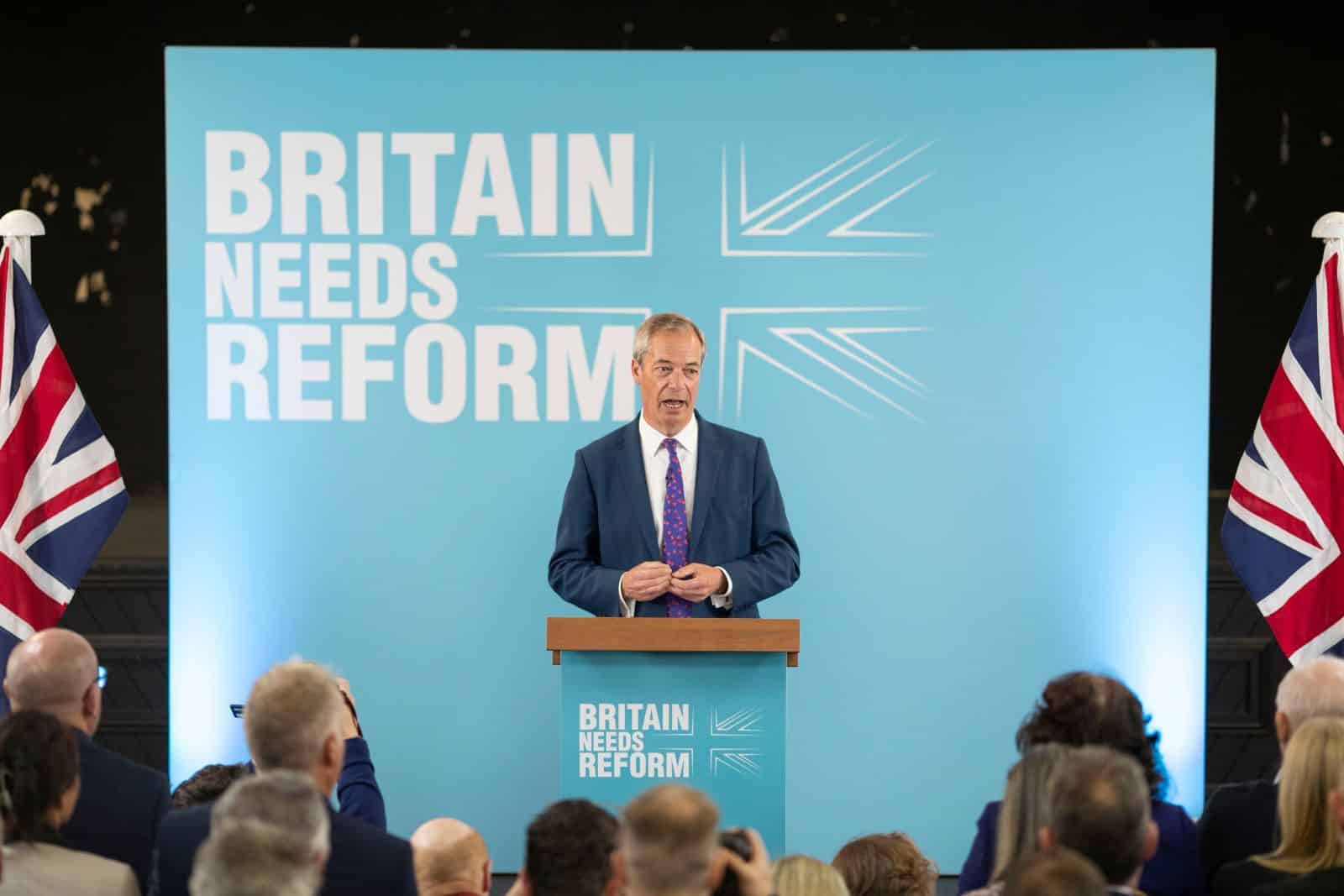
A recent poll conducted by Savanta has uncovered a shocking revelation: a significant portion of the British public holds Nigel Farage, the leader of Reform UK and occasional MP for Clacton, personally responsible for the riots which erupted across the UK following the tragic knife attack in Southport.
Damning Indictment of Farage

The results are a damning indictment of Farage’s behaviour both during and following the riots, with 51% of the 2,237 respondents believing Farage played a crucial role in inciting the violence which spread across England and Northern Ireland.
Farage Behind Robinson
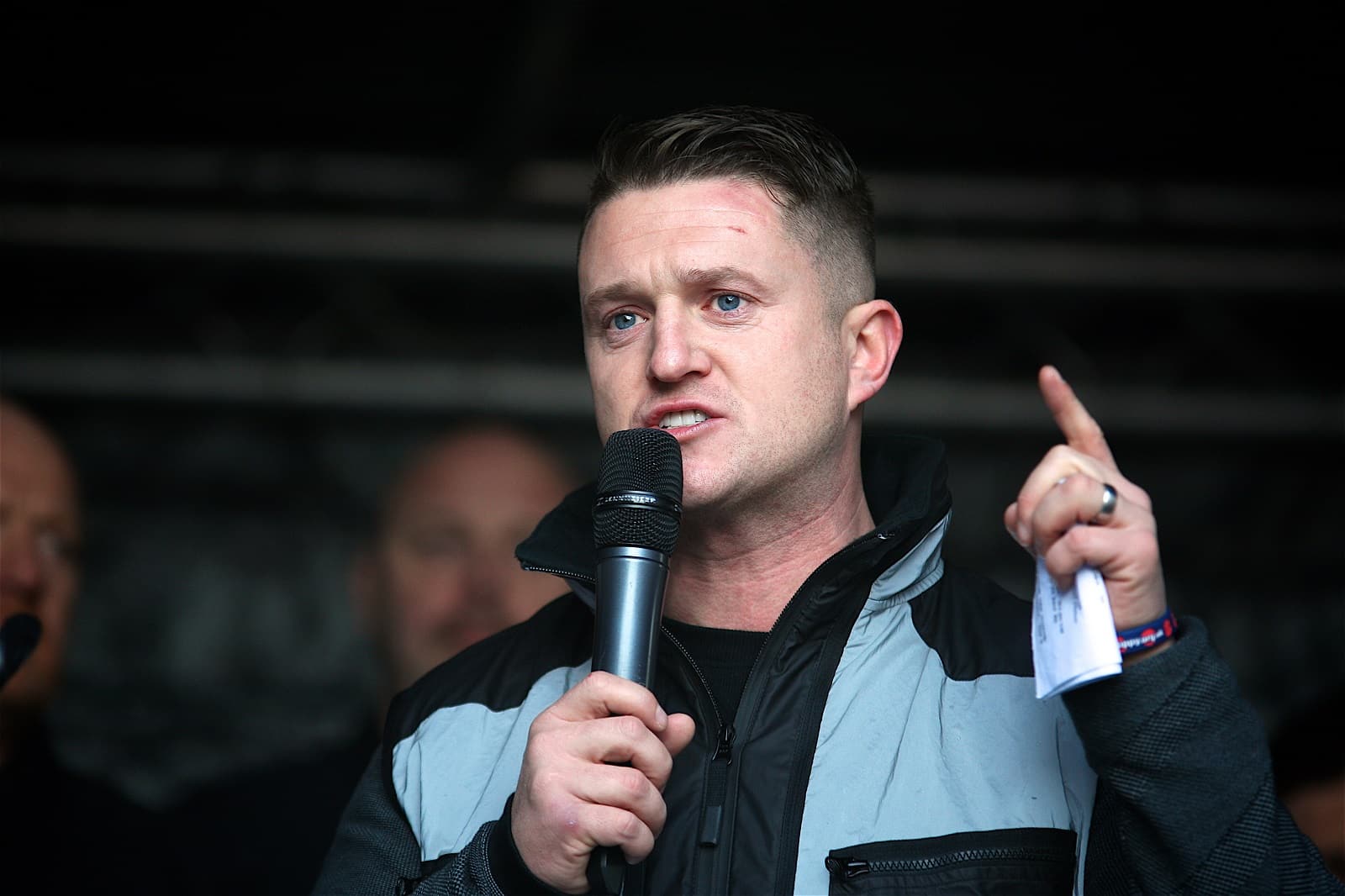
Incredibly, this puts Farage, a sitting Member of Parliament, just behind Tommy Robinson, real name Stephen Christopher Yaxley-Lennon, the former leader of the English Defence League and far-right agitator who was blamed by 54% of respondents.
Controversial Comments Spark Backlash
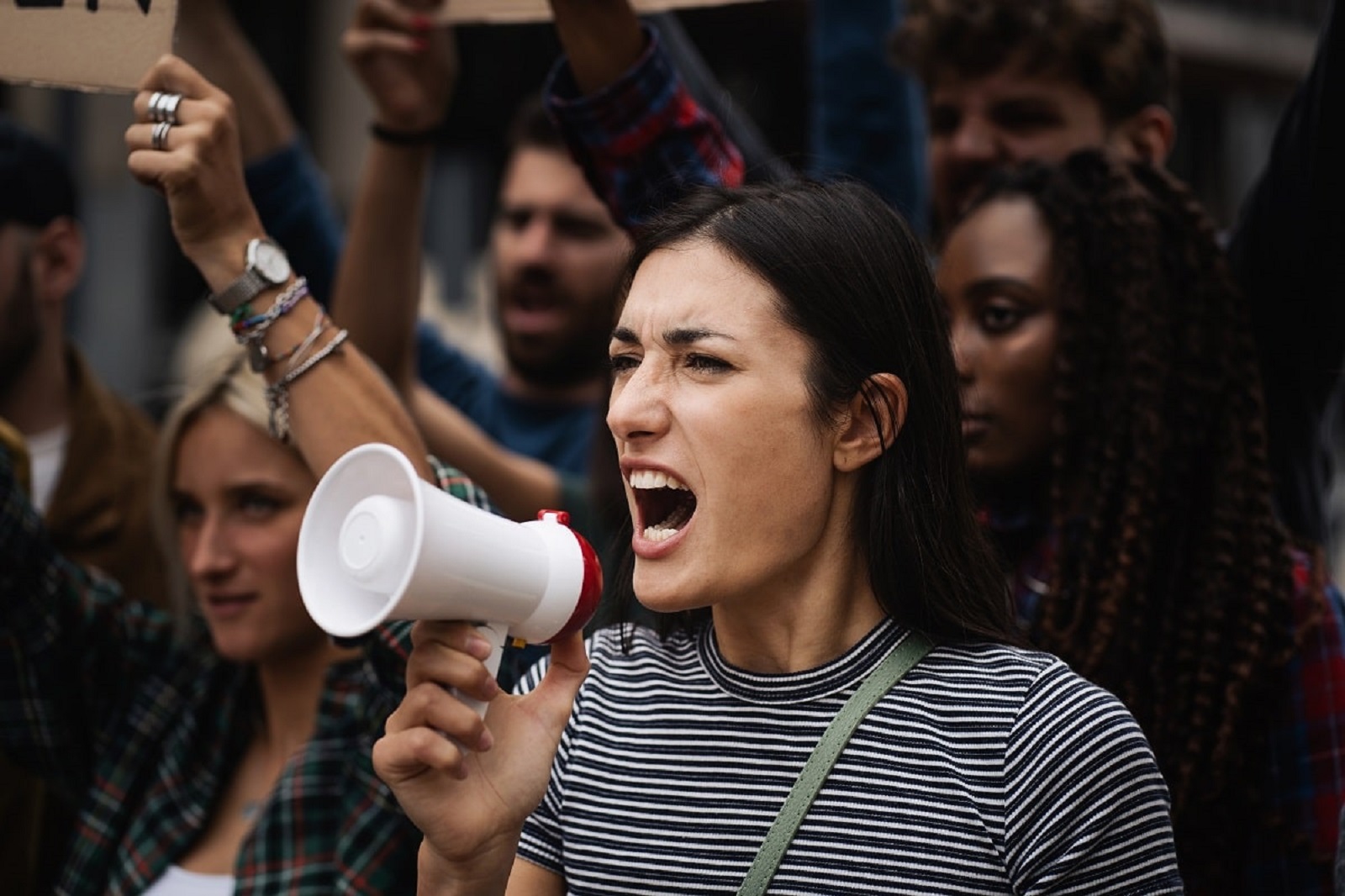
The controversy surrounding Farage began when, in the days following the tragic murders, as the riots were still spreading across England and Northern Ireland, the Reform UK leader waded into the discussion of the riots with comments that, in typical Farage-fashion, led to an immediate backlash.
Misinformation Amplified Online

Farage posted a video of himself flanked by Union Jacks on X, formerly Twitter, where he amplified online misinformation, asking, “Was this guy being monitored by the security services? Some reports say he was, others less sure … I just wonder whether the truth is being withheld from us.”
Viral Misinformation Incites Riots
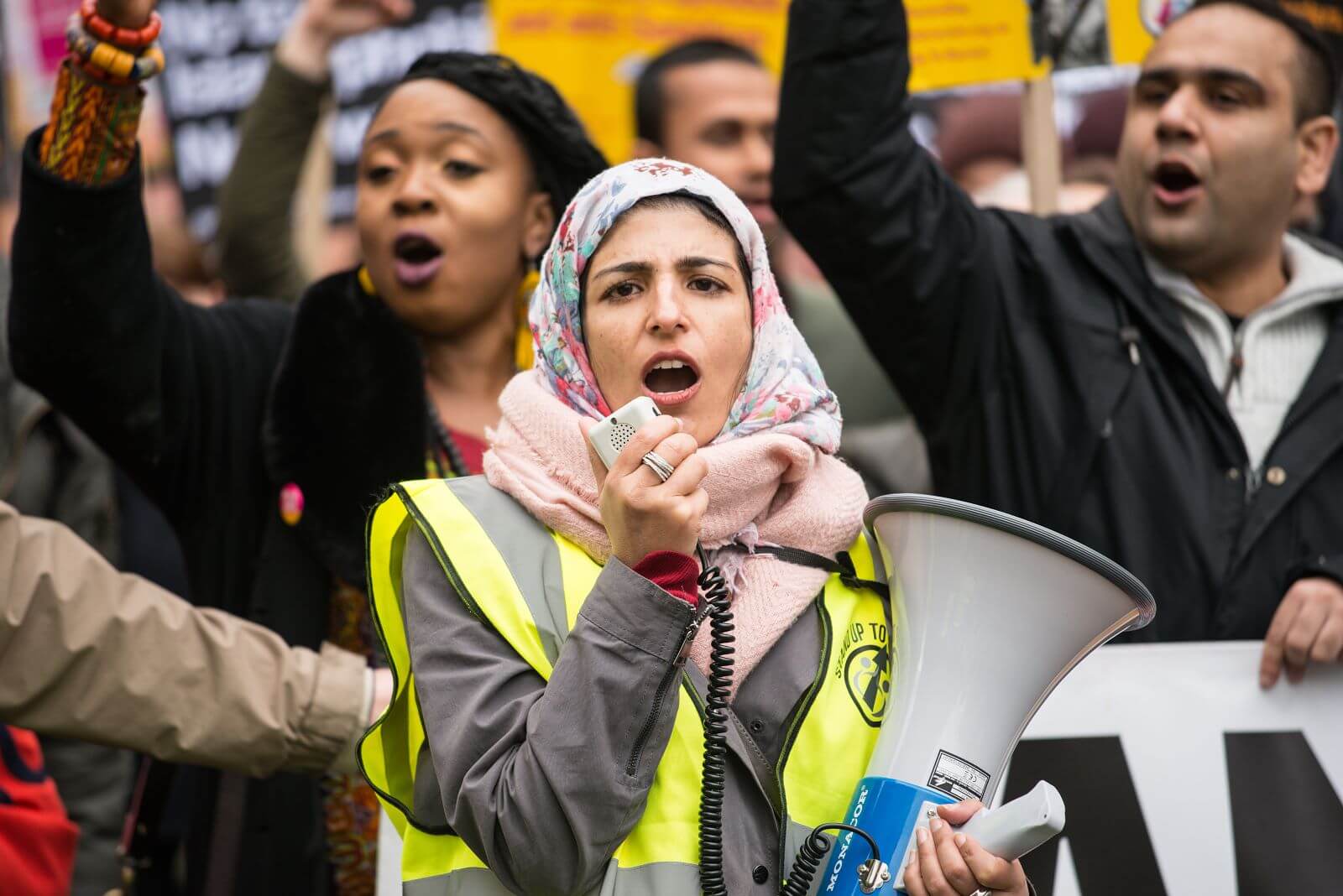
Farage’s comments quickly went viral, leading many rioters to incorrectly believe that the attacker was a Muslim asylum seeker and sparked an immediate backlash, with many accusing him of irresponsibly inciting panic and distrust during a time of national crisis.
Farage Admits Misinformation
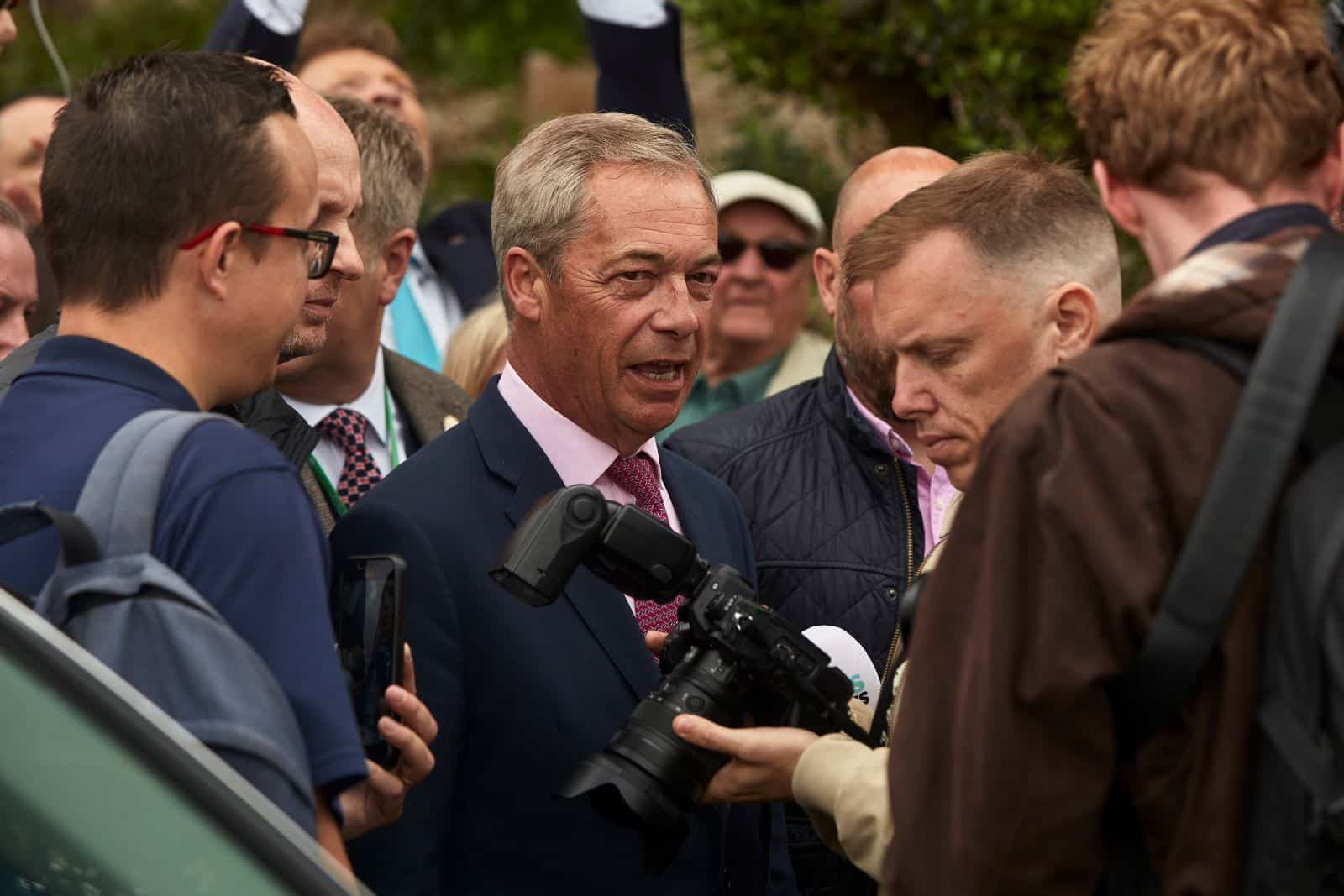
In the days following the riots, Farage came clean and admitted that he had unintentionally spread misinformation that figures like fellow far-right influencers and confessed misogynist Andrew Tate had spread.
Damage Done, Public Skeptical

However, with the damage already done and the misinformation Farage had repeatedly quickly disseminated over social media to his millions of followers, his attempts to distance himself from the growing chaos were met with scepticism, if not outright enmity.
Public Supports Police Response
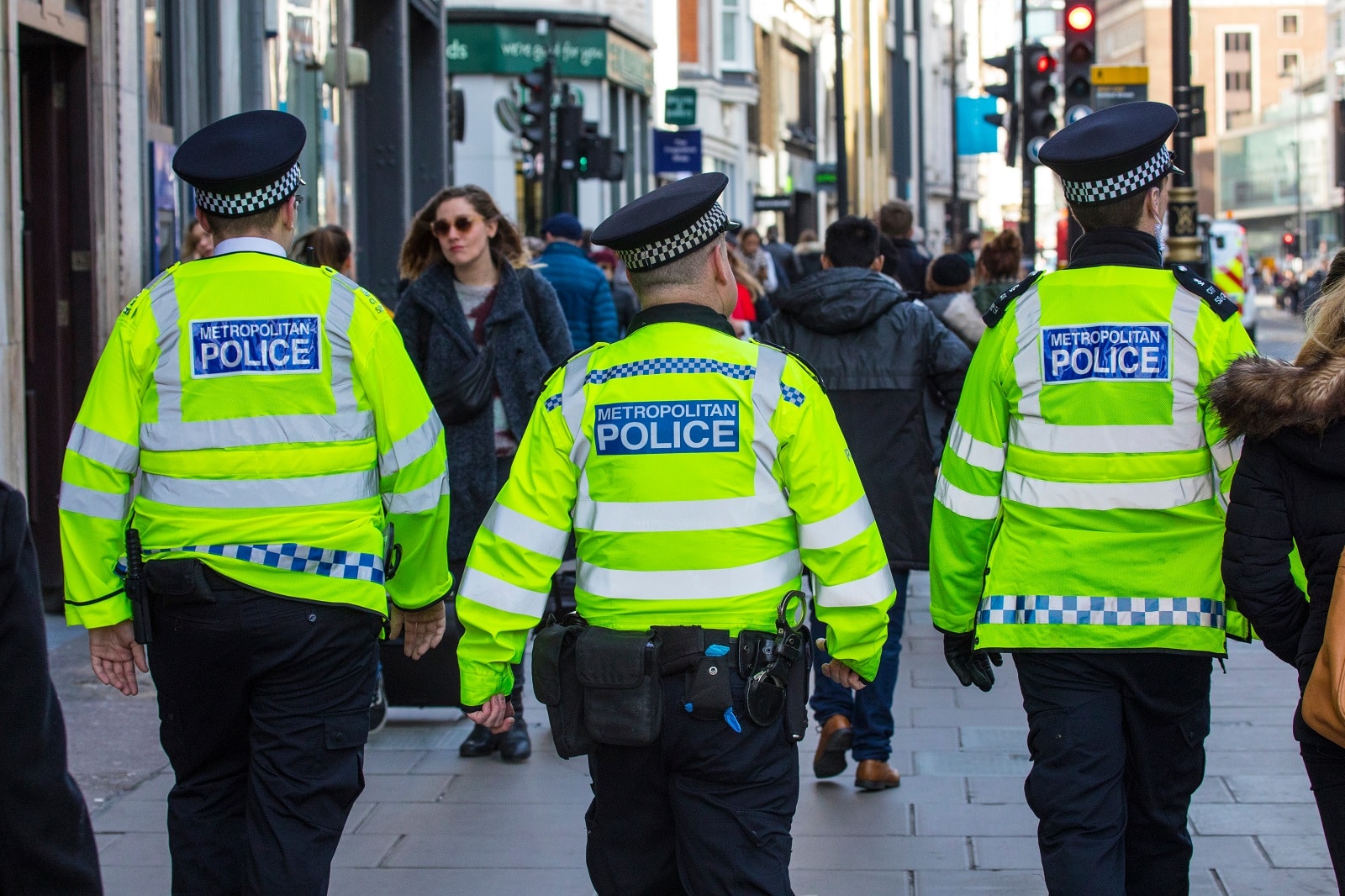
Despite Farage’s promotion of the far-right conspiracy theory of two-tier policing, which contends that police give preferential treatment to left-wing and ethnic minority protesters over far-right ones, the polling showed that the public overwhelmingly supported the police response to the far-right violence.
Majority Backs Police, Starmer
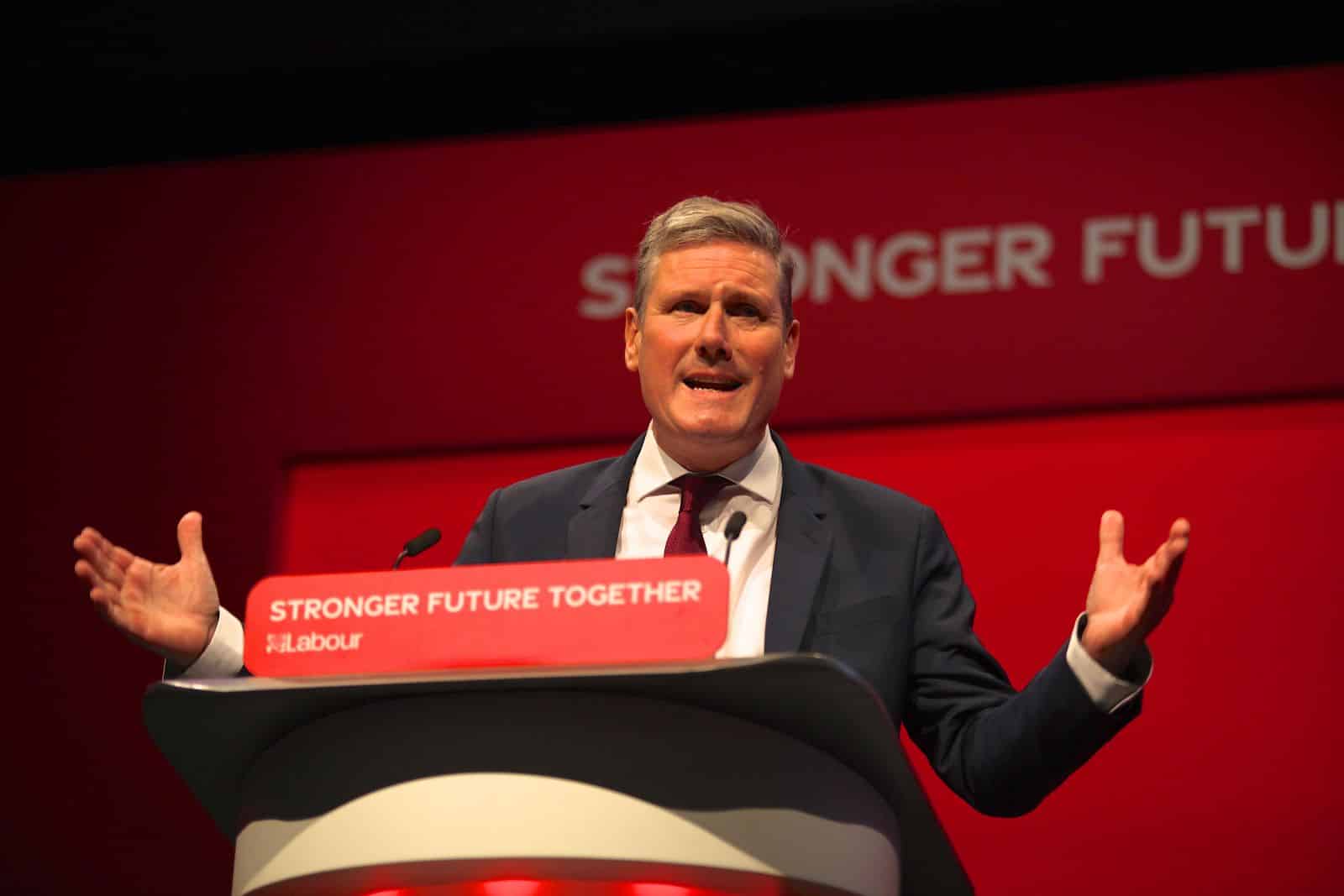
Most respondents, 64%, believed the police had managed the situation well. Similarly, 52% of respondents thought Prime Minister Keir Starmer had performed well during the crisis, with 38% disagreeing.
Broader Issues Blamed
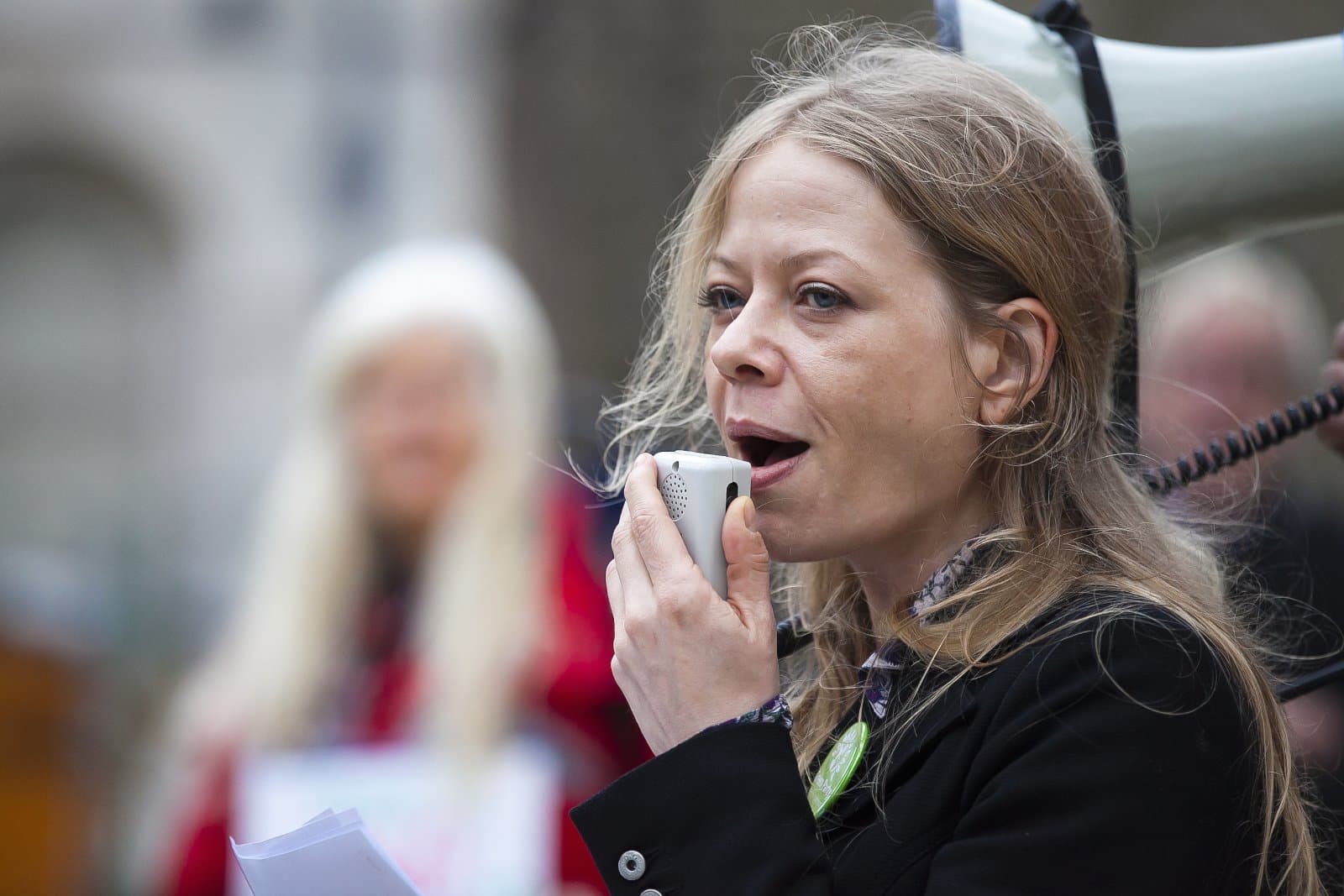
However, the poll results showed that the public did not blame Farage and Robinson alone. The respondents blamed some broader societal issues for the unrest.
Rioters, Far-Right, Social Media

Unsurprisingly, an overwhelming 82% of respondents pointed to the individuals who participated in the riots as the primary culprits, with far-right organisations (75%) and social media companies (73%) not far behind in terms of receiving blame.
Immigration Policy Under Fire
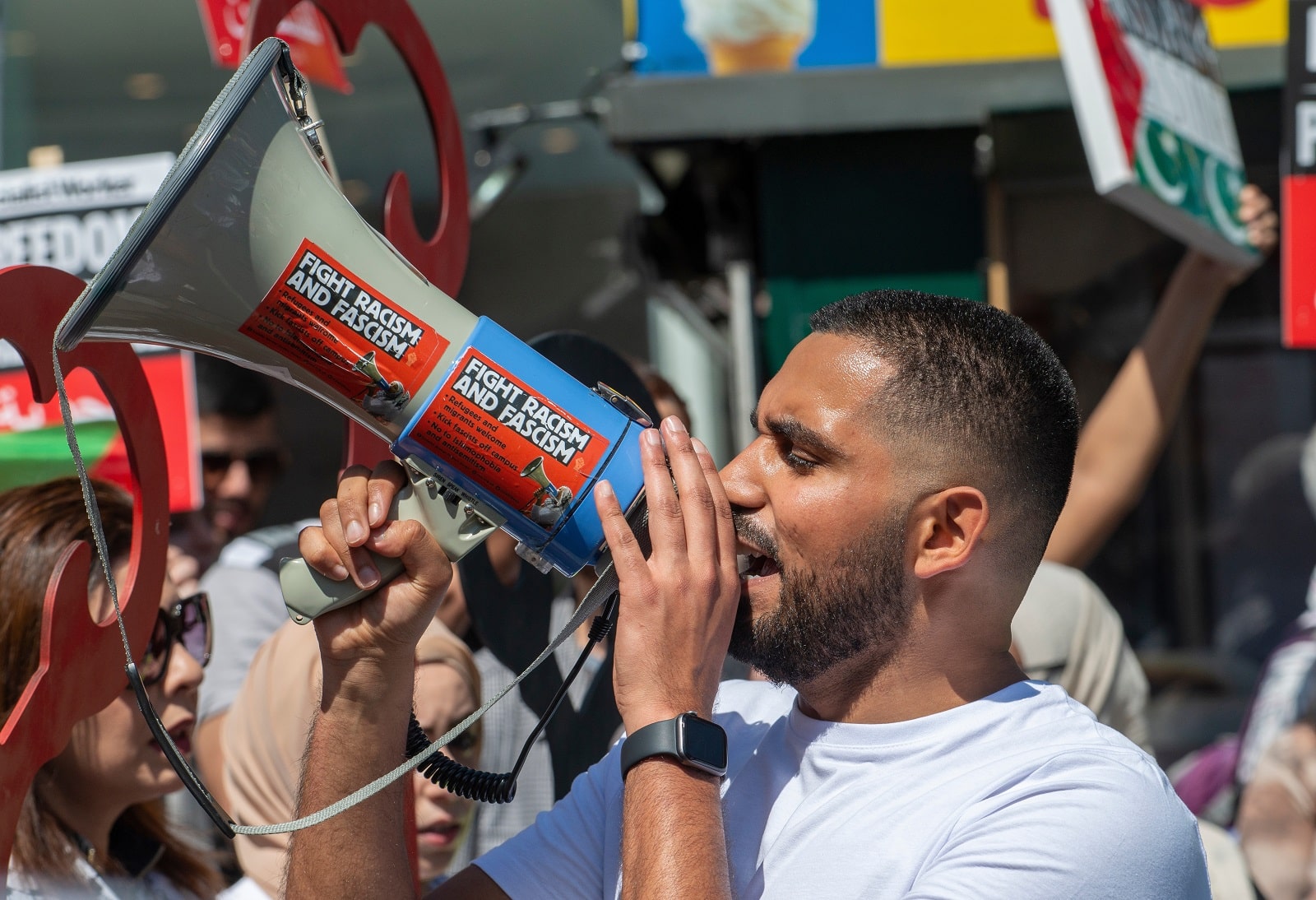
Shockingly, nearly two-thirds of respondents, 64%, attributed the unrest to the UK’s immigration policy. However, considering how the previous Conservative government made “Stopping the Boats” a primary electoral goal and years of sensationalist media coverage of immigration issues from the UK’s right-wing newspapers, it is unsurprising that so many agree with what are essentially far-right talking points.
Stabbing Not Primary Trigger
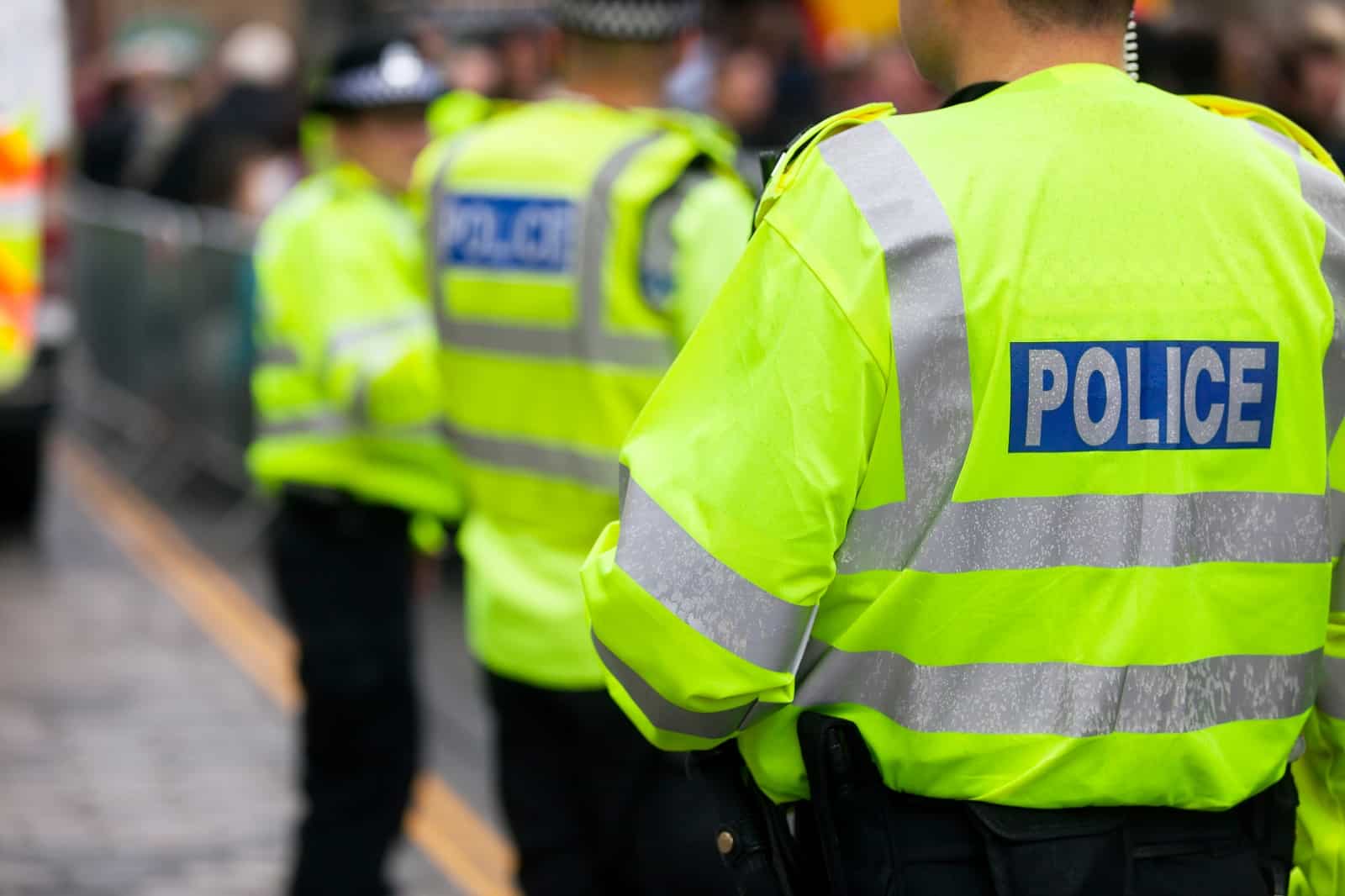
Incredibly, despite the Southport stabbing and the rumours swirling around online in the aftermath of the tragedy serving as the immediate trigger for the riots, only 59% of the public believed that the killing of three young girls, rather than immigration issues, was the inciting incident which caused the riots.
Immigration Concerns Prioritised
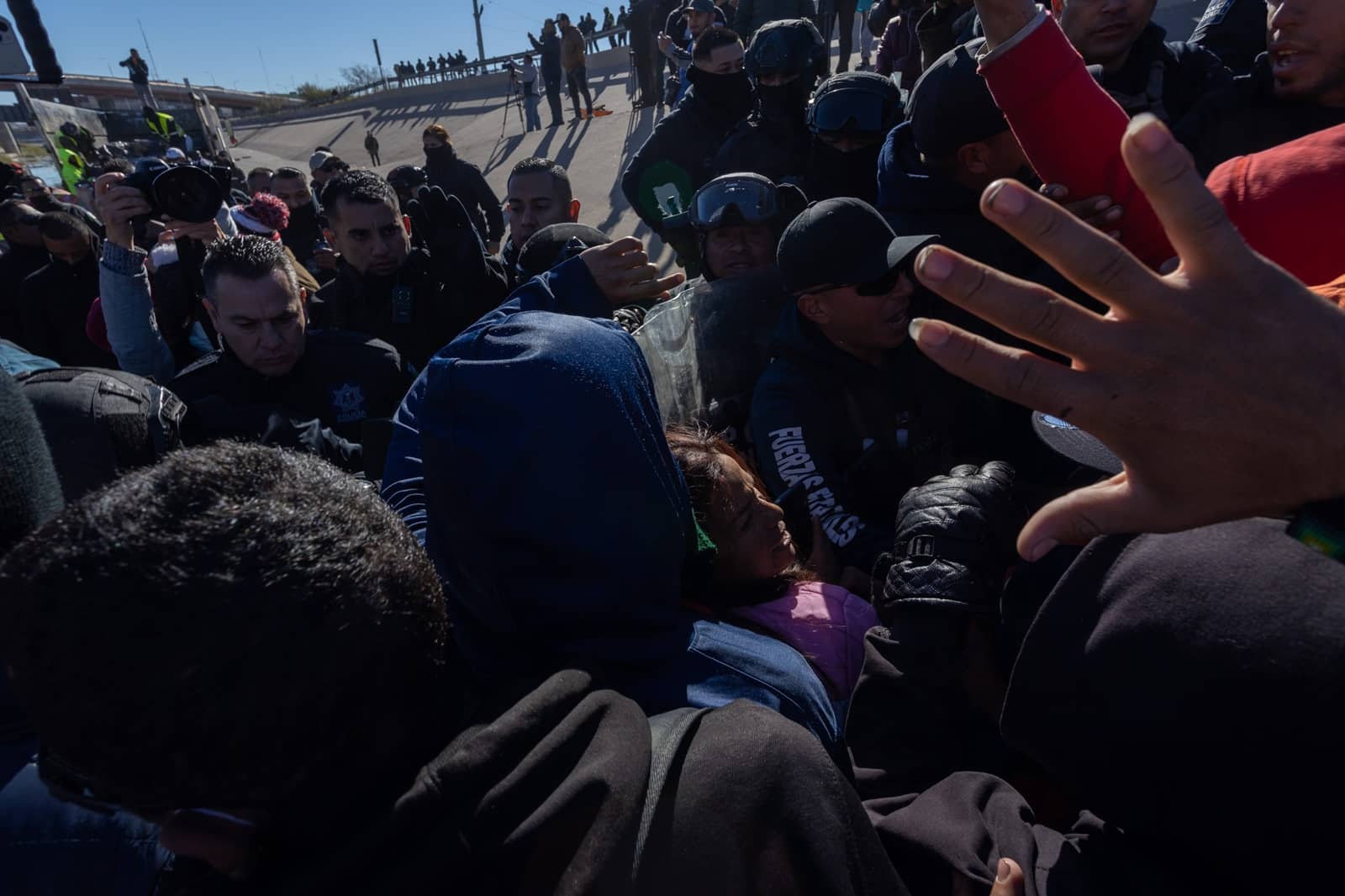
Additionally, 30% of respondents suggested that addressing public concerns about immigration is essential to preventing a recurrence of violence, while only 10% believed tackling social inequality would prevent another outbreak of unrest.
Farage Takes a Hit
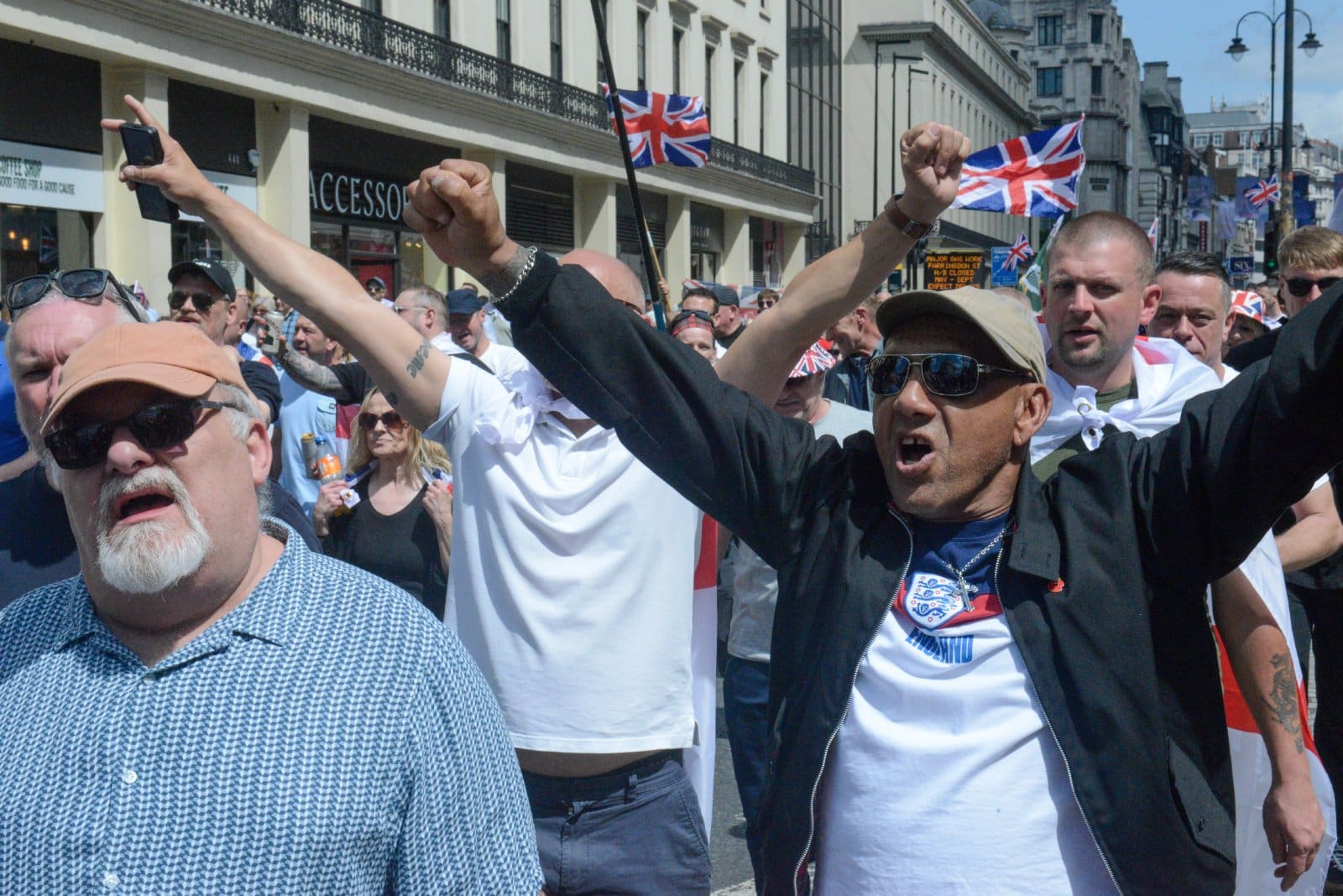
Regarding the findings, Chris Hopkins, research director for Savanta, stated, “Contrary to online talking points, the country is broadly more likely to say Keir Starmer did well in managing the situation than not. Our research probably makes grimmer reading for Nigel Farage, who is only behind former EDL leader Tommy Robinson in being seen as ‘responsible’ for the violent protests.”
Swift Justice Needed
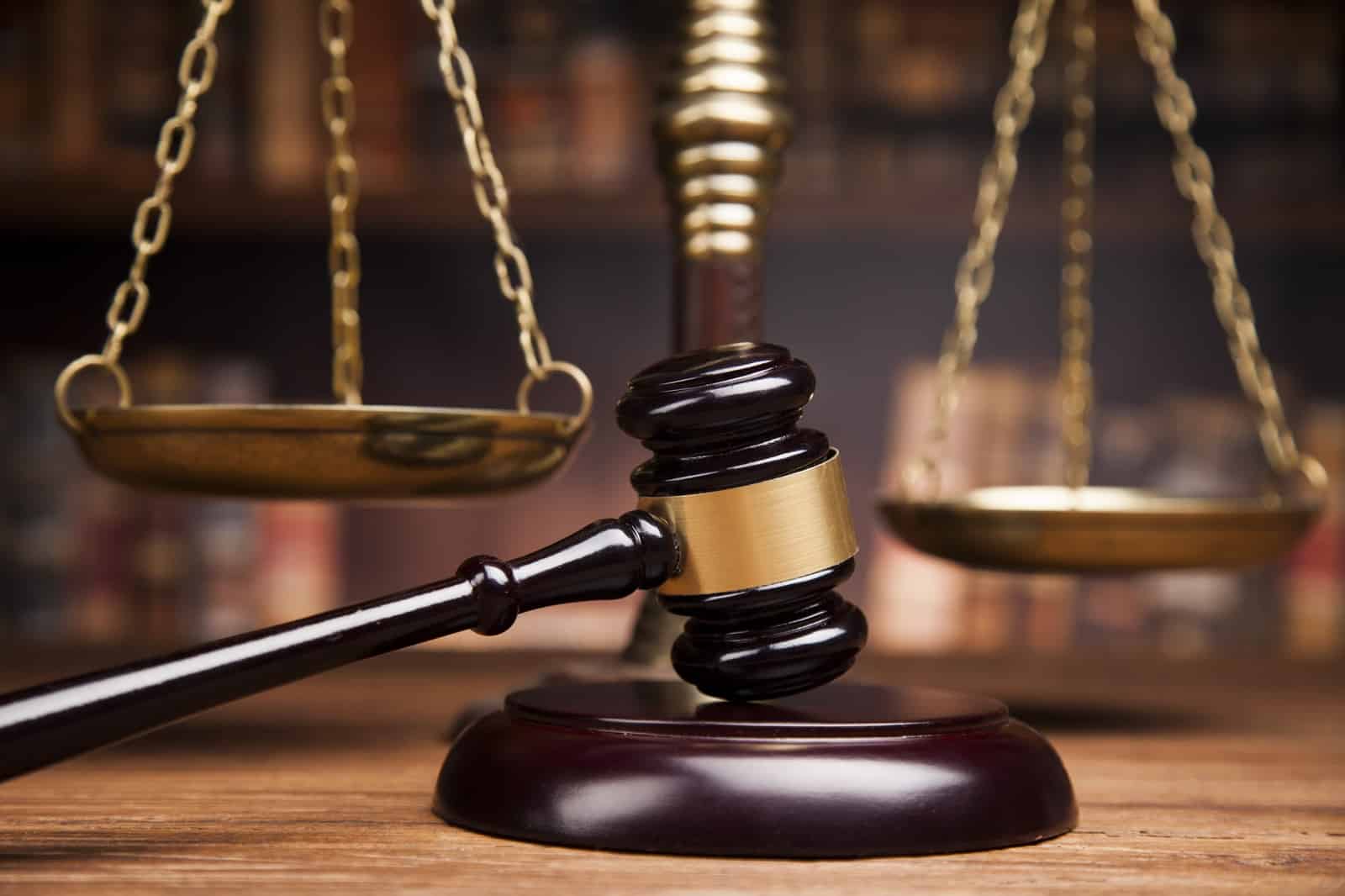
He added, “The public think that swift justice for violent protestors is the best way to stop them happening again – a course of action being followed by the government. The next thing they think needs to happen is public concerns about immigration being addressed.”
Deradicalisation Urgently Needed

As the government and the public continue to grapple with the aftermath of the riots, the need for immediate action and long-term solutions to effectively deradicalise a UK public which has been so poisoned against immigration, which is a net benefit to the UK economy, that a shocking number believe immigration, not far-right agitators, is to blame for the riots.
Farage’s Future Uncertain
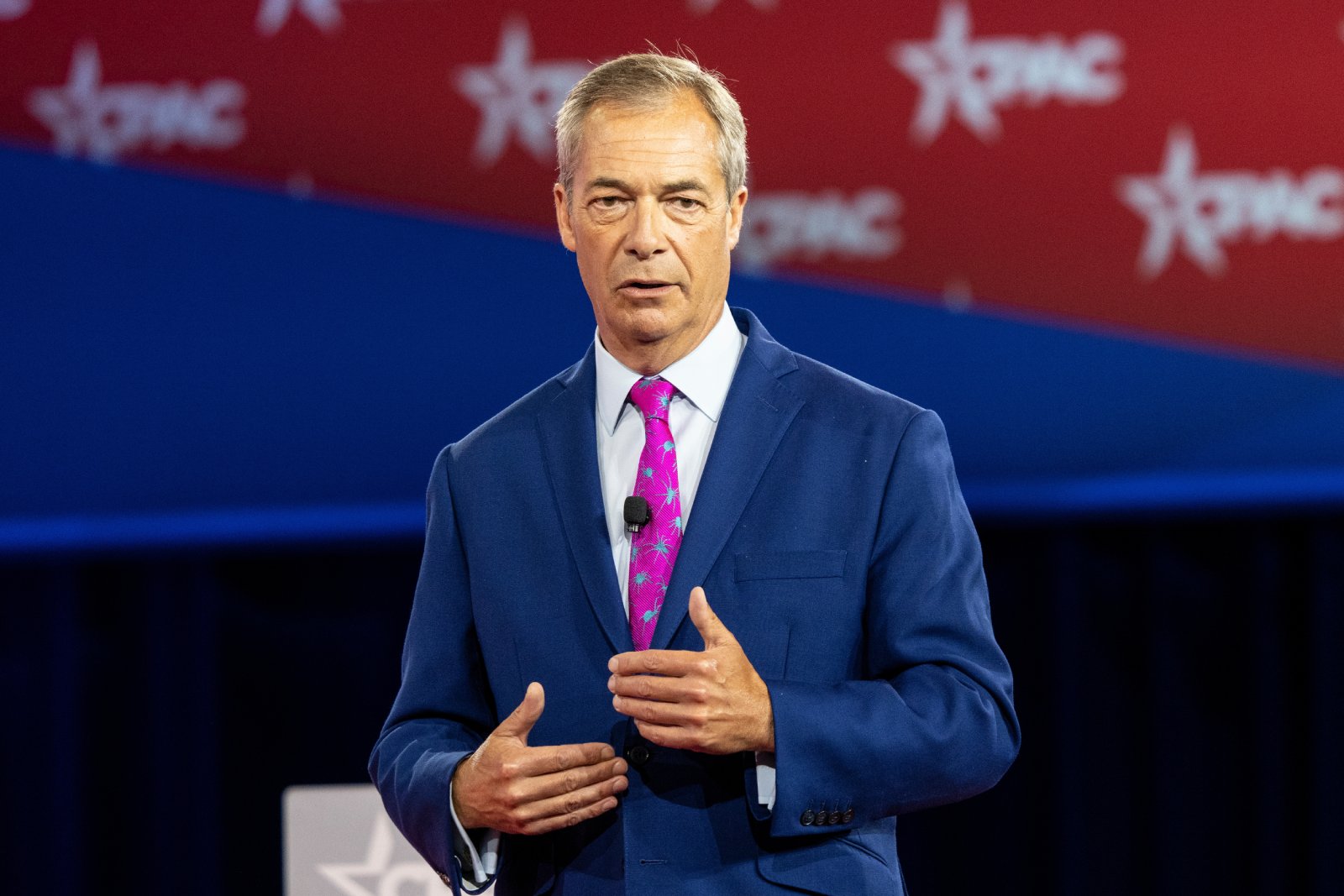
However, it will undoubtedly be comforting for many to realise that, despite sensationalist anti-immigrant rhetoric being taken up by over two-thirds of the UK public, similar numbers blame one of the main drivers of anti-immigrant, populist sentiment, Nigel Farage, for the riots.
Reform UK’s Prospects Unclear
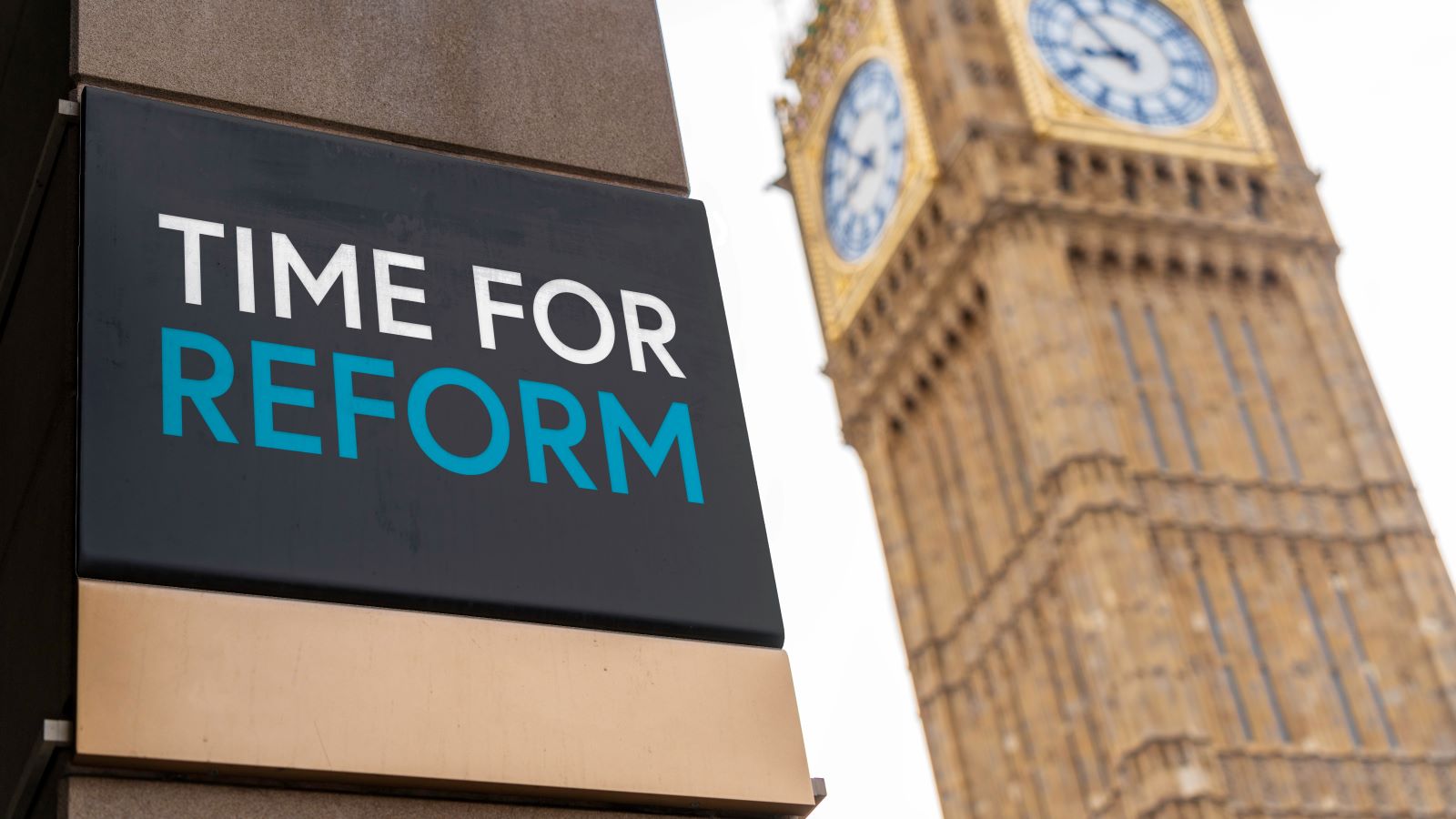
However, it remains to be seen whether this will affect his enduring popularity or what it might mean for his party’s political fortunes, Reform UK.
Featured Image Credit: Shutterstock / Martin Suker.
The images used are for illustrative purposes only and may not represent the actual people or places mentioned in the article.

